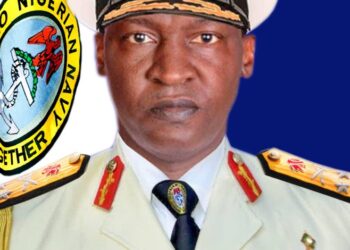Nigeria’s National Security Adviser (NSA), Nuhu Ribadu, has dismissed accusations made by former Kaduna State governor Nasir El-Rufai that the Federal Government pampers bandits and rewards them with incentives.
El-Rufai’s Allegations Against the NSA
Speaking on Channels Television’s Politics Today on Sunday night, Mr El-Rufai claimed that the Office of the National Security Adviser (ONSA) coordinates a policy of paying and pampering criminal groups.
He alleged that bandits receive allowances, food supplies, and protection as part of what he described as the government’s “non-kinetic” approach to insecurity. Comparing his administration with the current government, the former governor said:
“What I will not do is to pay bandits, give them monthly allowances, or send food to them. It is nonsense. We are empowering criminals, and this policy is driven by the Office of the NSA.”
Mr El-Rufai insisted that Kaduna State was forced to implement the alleged national policy despite his personal opposition to it.
Ribadu’s Response to the Claims
In a swift reaction on Monday, the Office of the NSA described the former governor’s statement as “false, baseless, and deeply insulting to the sacrifices of Nigeria’s security forces.”
Zakari Mijinyawa, spokesperson for the ONSA, clarified that neither the NSA nor any other arm of government under the current administration has ever paid ransom or induced criminals.
“On the contrary, we have repeatedly warned Nigerians against paying ransom,” the statement read. “El-Rufai’s allegations not only lack merit but also contradict verifiable facts.”
Government’s Approach to Banditry
The ONSA stressed that the Tinubu administration adopted a dual strategy, strong military operations alongside community engagement. This approach, the statement noted, has restored peace in several local governments of Kaduna, including Igabi, Birnin Gwari, and Giwa.
Mr Ribadu’s office also highlighted the successful elimination of notorious bandit leaders such as Boderi, Baleri, Sani Yellow Janburos, Buhari, and Boka. Security forces have also dismantled Ansaru terror bases in Kaduna and arrested several leaders of the group.
“These achievements came at great cost,” the statement added. “Brave officers paid the supreme price. For Mr El-Rufai to dismiss these sacrifices on national television is unfair and insulting to their memories.”
The NSA warned political actors against dragging national security institutions into partisan disputes, stressing that fighting banditry requires unity, not political point-scoring.
Ribadu and El-Rufai: From Allies to Rivals
The clash between Mr Ribadu and Mr El-Rufai is the latest chapter in a long-standing rivalry. Both men gained prominence under former President Olusegun Obasanjo, where Mr Ribadu served as the pioneer chairman of the Economic and Financial Crimes Commission (EFCC), while Mr El-Rufai was first the Director-General of the Bureau of Public Enterprises and later Minister of the Federal Capital Territory.
At the time, they were viewed as reformists driving anti-corruption and modernization policies. However, their alliance collapsed in 2011 when the Action Congress of Nigeria (ACN) chose Mr Ribadu as its presidential candidate. Mr El-Rufai opposed the choice, instead backing Muhammadu Buhari of the Congress for Progressive Change (CPC).
In recent years, their disagreements resurfaced. Earlier this year, Mr El-Rufai accused his former ally of using anti-graft agencies, particularly the Independent Corrupt Practices Commission (ICPC), to target him over alleged corruption during his tenure in Kaduna. Mr Ribadu denied the claim, stressing that anti-corruption bodies operate independently.
The ongoing feud between Nuhu Ribadu and Nasir El-Rufai underscores deeper political rivalries that extend beyond security debates. While Mr El-Rufai insists the federal government is shielding bandits, Mr Ribadu maintains that security agencies are sacrificing lives to restore peace.
The exchange highlights how partisan politics continues to intersect with Nigeria’s pressing national security challenges.












